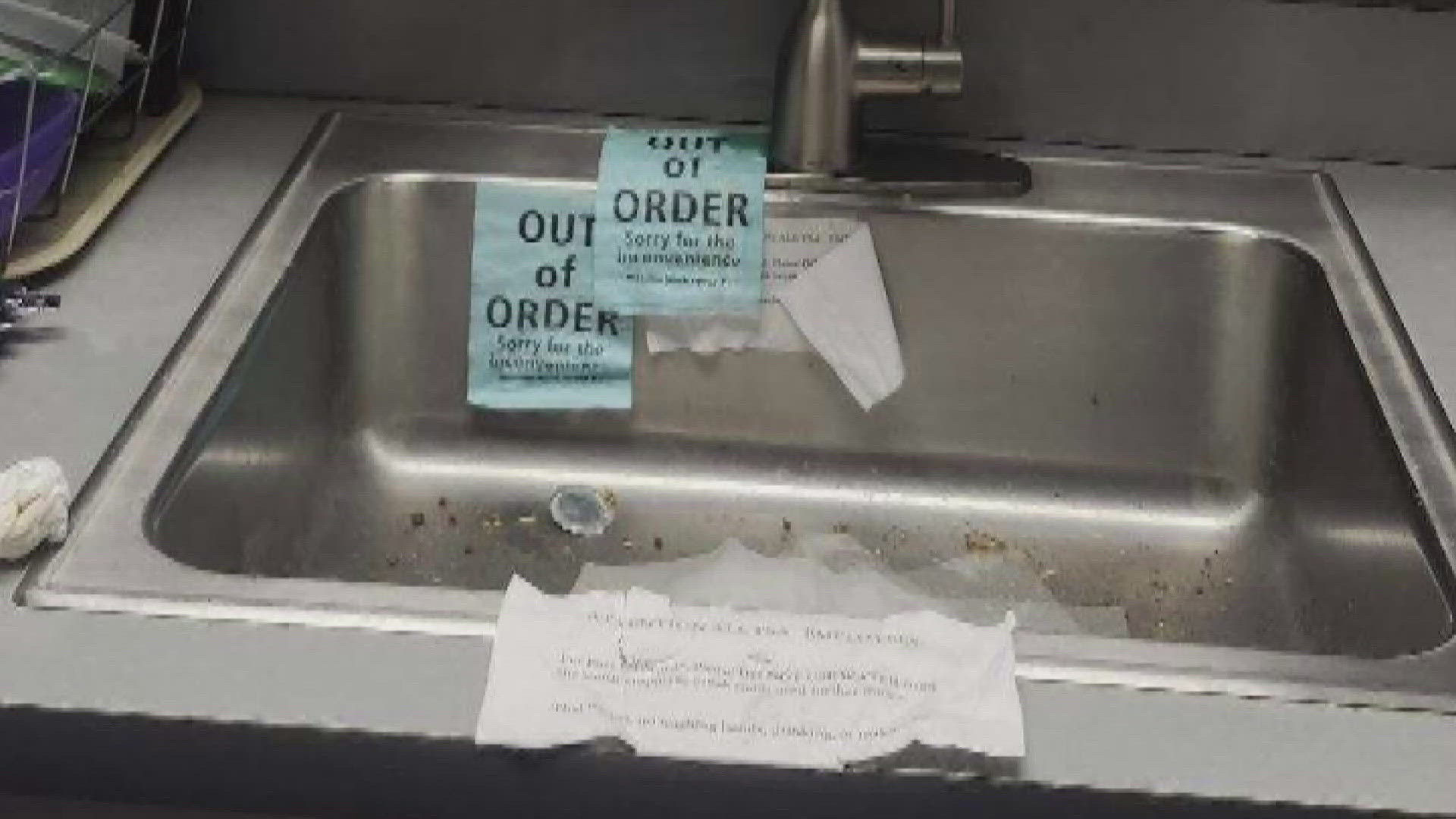SEATAC, Wash. — SEA Airport-based officers of the Transportation Security Administration (TSA) are tasked with protecting the airport from safety hazards each and every day. Now, a local officer is hoping the airport will do the same for them after learning they may have been exposed to harmful levels of lead and copper.
According to a letter obtained exclusively by KING 5 from the Port of Seattle, two separate tests on the water in the TSA's South Break Room sink revealed exceeded levels of both lead and copper, per the corrosion control metrics of the Environmental Protection Agency.
"The Port [of Seattle] has a responsibility to make sure that we are safe," one TSA officer said. Out of fear of retaliation, they spoke with KING 5 on the condition of anonymity.
SEA Airport, along with many others across the country, was required to perform these tests. In 2024, the U.S. General Services Administration decided to strengthen its water quality testing efforts in federal buildings to protect the health and safety of the people who work in them.
On Sept. 13, the officer said SEA Airport's TSA employees were informed that lead and copper were detected in the water in the kitchen sink in their South Break Room. The water lines were immediately turned off, according to Port of Seattle, and alternative water and sanitizer were provided for TSA officers to use.
However, the officers are feeling unsettled. They said many started thinking back to all the times they had drank or put the water in their mouths unknowingly.
"People were putting the water in their mouth. They're touching, the-- they were washing their hands, they were putting it on their face. They were handling their personal effects," said the TSA officer.
KING 5 asked whether employees would brush their teeth in the kitchen sink.
They responded, "Yeah... officers come to brush their teeth. I mean, some are there for, I mean, 10 hours plus.”
"We're in the dark completely," said the officer. "We have to handle so much stuff at an airport, it's just a very dirty place.”
The officer said many have worked there for several years, and that it makes them concerned about the water quality's effect on their health.
"Gosh, who knows what that will do to someone, especially if they're more susceptible," they said.
Two weeks later, the water fixtures were re-tested. According to the Port of Seattle's letter to the Washington State Department of Labor and Industries, there were still "exceedances for both lead and copper" in the TSA South Break Room kitchen sink.
"It confirmed that there was definitely lead and copper," said the officer. "This is 100% a concern amongst all the officers.”
Lead is colorless, odorless, and tasteless, meaning it can go undetected in water, placing adults who drink it at higher risk for cancer, stroke, and memory problems, according to Penn State researchers. Drinking copper can lead to vomiting, diarrhea, or even kidney and liver damage, according to the CDC.
"A lot of us have had health illnesses, and, you know, some of them have been pretty intense or severe... health-related issues not related to this, but could this make it worse?” said the officer.
The Port’s letter says, "SEA is investigating the source of exceedance to the water system, looking into the kitchen faucet, heat tank, connections and mechanical plumbing."
Should travelers be concerned? The Port of Seattle's spokesperson, Perry Cooper, says no; in fact, he told KING 5 that all past water tests had been reported as below exceedance levels for such toxins.
He also said that samples are regularly collected in public areas because they are regulated by a different agency, the Washington State Department of Health.
Perry added that a third test, after flushing, came back normal and that the fixtures in the break room have all been replaced "out of an abundance of caution." The next test is processing this week, and will likely provide them with new results by Thursday or Friday.
Looking forward, the anonymous agent said they hope the blue-uniformed employees will get their blood testing paid for.
According to the CDC, most insurance covers the cost of testing.
KING 5 reached out Labor and Industries to ask whether the Port of Seattle would be required to provide testing for lead in the blood. Their public affairs manager, Matt Ross, said, "No, we’d require blood lead level testing in certain cases where there is airborne lead exposure."
However, it appears the department provides a benefit reimbursement for doctors who perform blood tests.
Still, the TSA officer is hoping for crystal-clear transparency-- just like the water they wish to be exposed to.
"We're just stuck in limbo right now without any information," they said.
Cooper with the Port of Seattle said alternative drinking water continues to be provided for that break room, until testing is back to normal.

